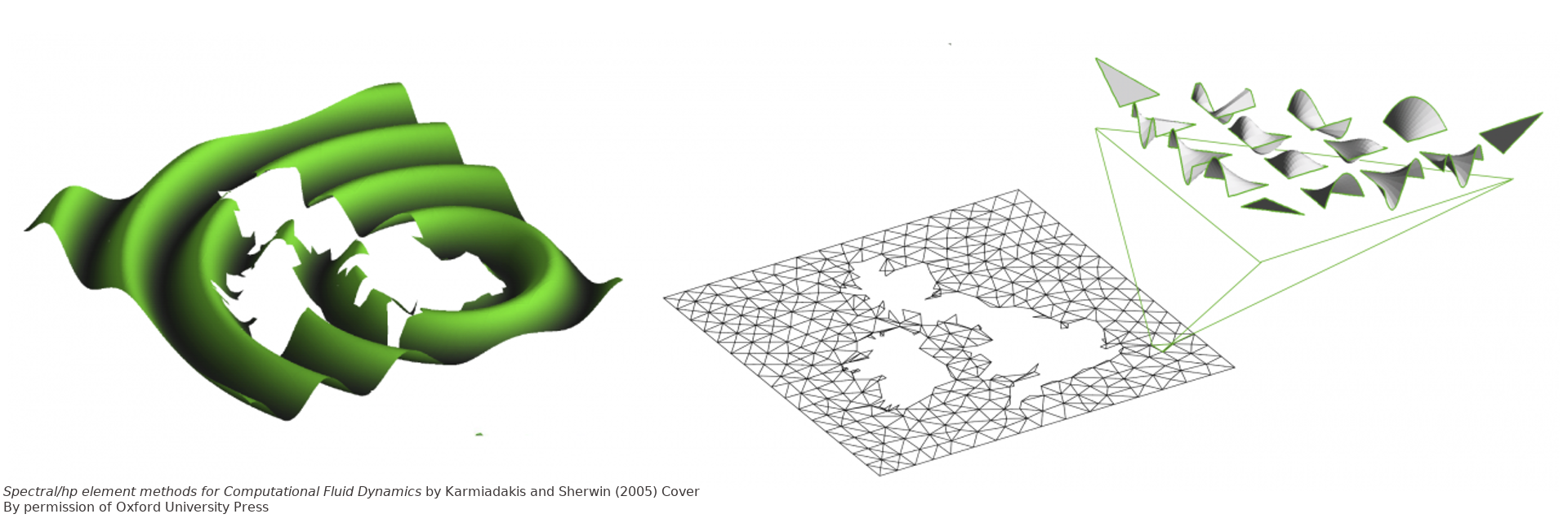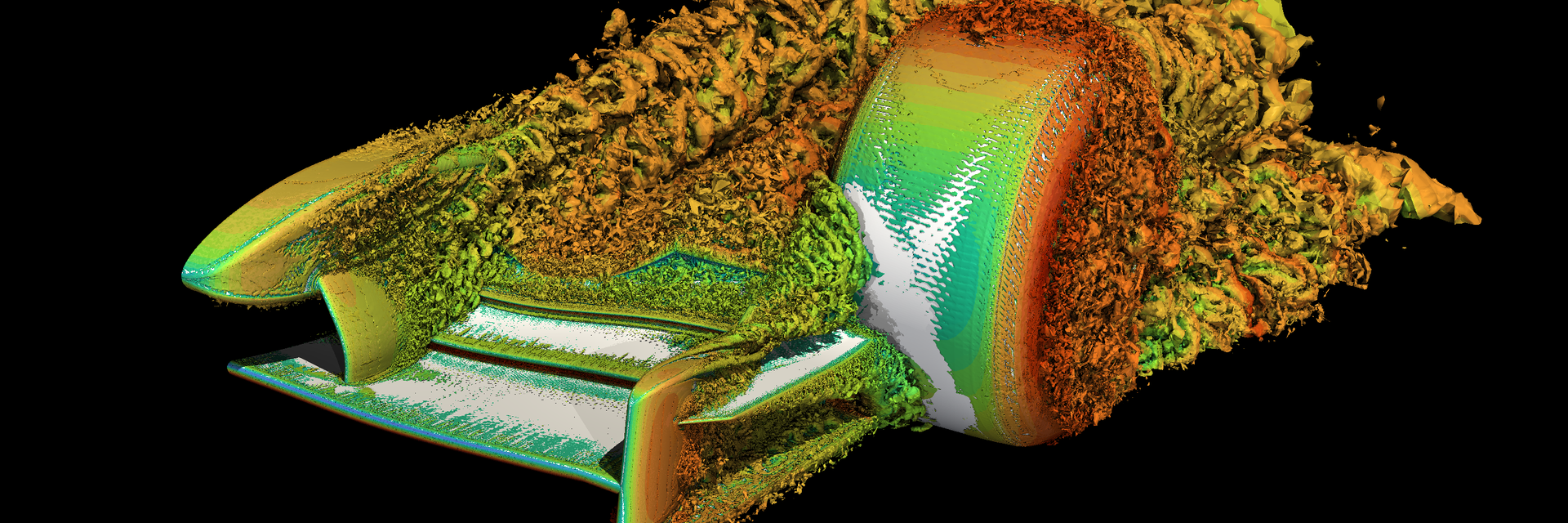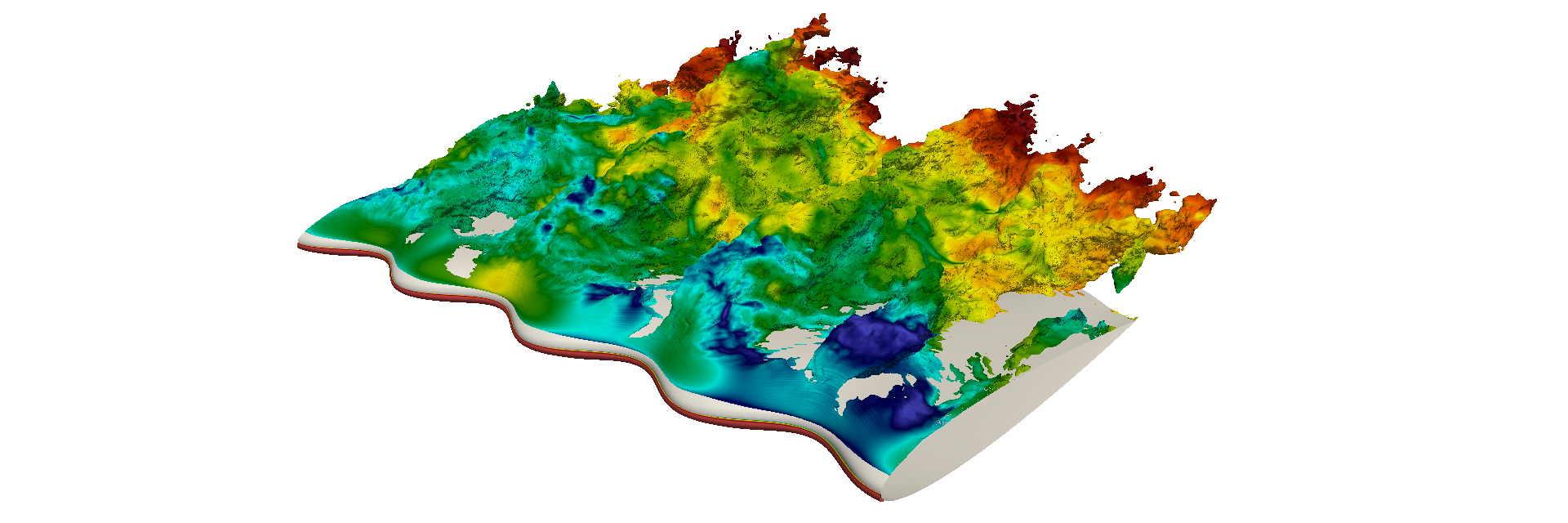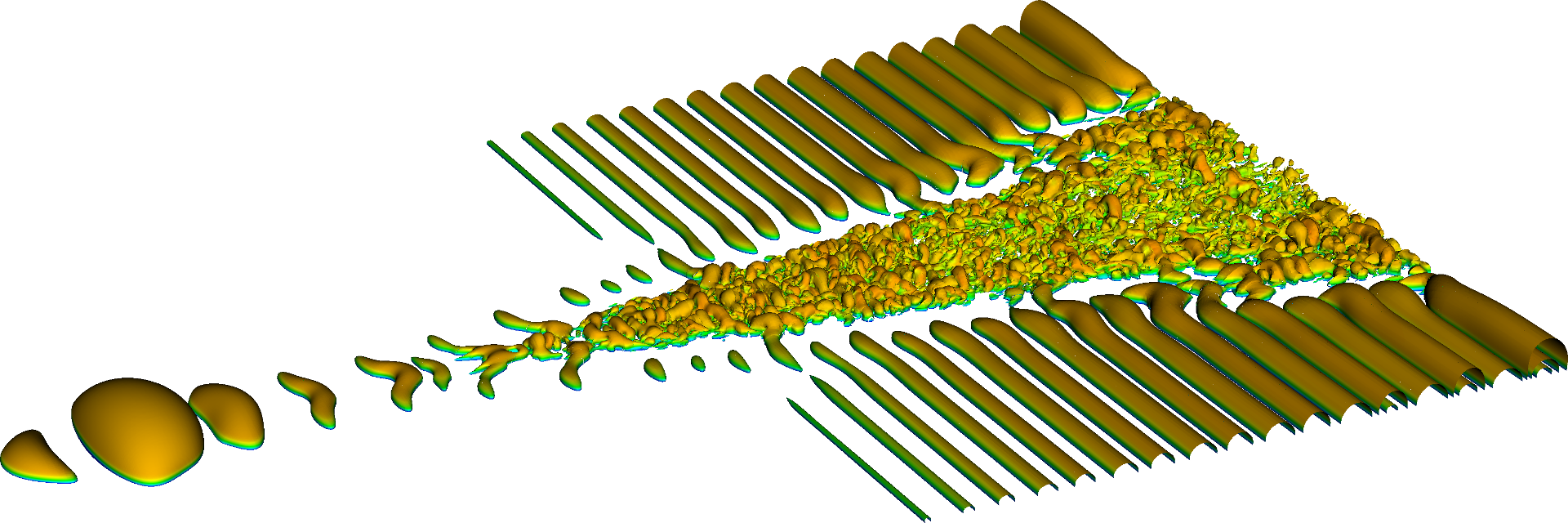- 1
- 2
- 3
- 4
- 5



Three-dimensional vortices generated by the Imperial Front Wing (IFW)
Instantaneous swirling three-dimensional vortices generated by the Imperial Front Wing (IFW), a benchmark Formula 1 geometry based on the McLaren MP4-17D race car.

Global Mappings
Instability of flow past a smooth circular indentation in a boundary layer at Rex=1M. Using the global mapping 2.5D method.What is Nektar++?
Latest Release
- Nektar++ 5.9.0 ReleasedThe latest version of Nektar++, v5.9.0, was released on the 9th November 2025.
News
- Performe force diagnostics in Nektar++Hydrodynamic force exhibits close correlations with flow structures. For example, a low-pressure regime is often observed when a concentrated vortex exists near the wall. A series of diagnostic methods has been developed in the past decades to elucidate these relationships.… Read more: Performe force diagnostics in Nektar++
- Scaling Nektar++ to 65K CPUs on ARCHER2The recent capability day on ARCHER2 allowed us to study the performance of the IncNavierStokesSolver in Nektar++ up to 65536 CPUs. We will discuss the strong scaling of the solver using the current best-practise configuration for an aerodynamic test case… Read more: Scaling Nektar++ to 65K CPUs on ARCHER2
- Nektar++ 5.9.0 ReleasedThe latest version of Nektar++, v5.9.0, was released on the 9th November 2025.
- Nektar++ 5.8.0 ReleasedThe latest version of Nektar++, v5.8.0, was released on the 15th June 2025.
- Nektar++ Workshop 2025The 9th annual Nektar++ Workshop will bring together developers and users of all experiences to hear about new and future developments in the Nektar++ spectral/hp element framework and the exciting science and engineering being undertaken with the code.
- Synthetic turbulence generator in Nektar++Advancements in modern hardware and numerical methods have significantly enhanced the feasibility of scale-resolving simulations, such as direct numerical simulation, for industrial applications. For effective application, these simulations require the generation of realistic incoming turbulence to ensure accurate predictions of the flow field.

